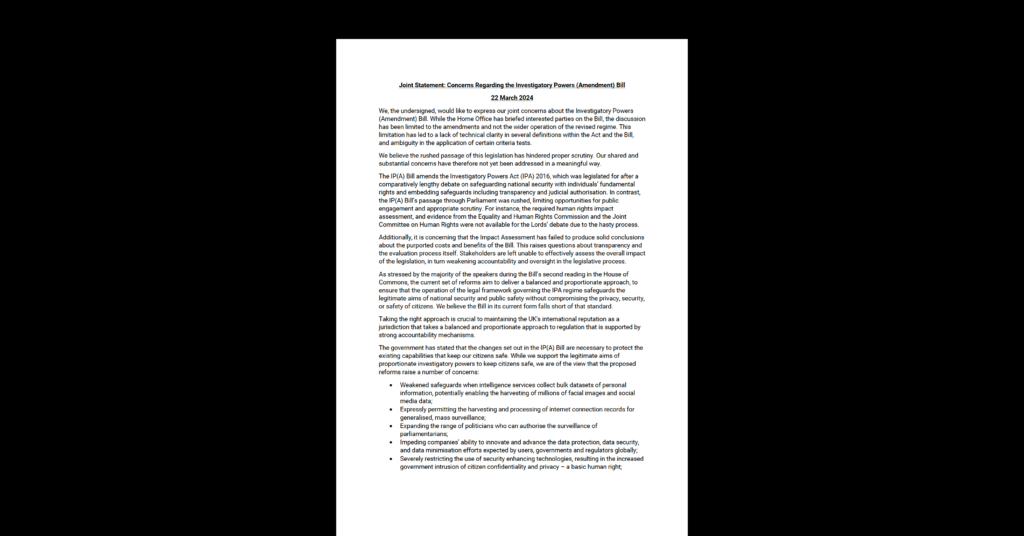CDT Europe and Civil Society Urge EU Commissioner to Clarify Comments About Blocking Social Media Under DSA
Today, a group of over 60 civil society organisations published a letter seeking urgent clarification from European Commissioner Thierry Breton on recent comments made during an interview that suggested that blocking online platforms that don’t ‘immediately’ remove hateful content could be an enforceable and justified measure under the Digital Services Act (DSA).
The comments were made in response to statements made by French President Emmanuel Macron who proposed blocking access to social media accounts in connection with the recent civil unrest in France after the killing of 17-year-old Nahel M by police during a traffic stop. In the interview, Commissioner Breton, who is responsible for the EU’s flagship platform regulation law, implied that the DSA provides the option to shut down online platforms as a sanction for failing to remove hateful content immediately- an act simply not provided for in the law.
Though the DSA does allow for temporary restrictions on access to services (Article 51), this is a last resort measure; to be considered, there must be cases of repeated infringements, non-cooperation, and potentially serious harm, such as a threat to life. The measure is additionally backed by extensive procedural safeguards, including authorisation of a competent judicial authority, that complies with international human rights standards. Signatories warn that the implication that the DSA facilitates such measures with ease risks setting the DSA as a regulatory example to legitimise the weaponization of internet shutdowns within EU member states and globally.
Internet shutdowns pose a grave threat to legitimate expressive activity and stifle the exercise of the freedom of association and peaceful assembly, which are essential tenets of a healthy democracy. Such proposals establish ‘prior restraint’ on communication or speech, which inevitably suppresses many individuals’ ability to communicate and disproportionately impacts historically marginalised groups who often use these channels to organise and express themselves freely. Civil society organisations around the world, including members of The #KeepItOn coalition, have documented the detrimental effects of Internet shutdowns on expression and safety, including in times of crisis.
The comments exacerbate existing concerns about the adaption of the DSA into French national law (Projet de loi “Sécuriser et réguler l’espace numérique”). The proposal includes a 24-hour deadline for content removals, a requirement expressly removed from the DSA during negotiations due to the detrimental impact that legally mandated strict and short time frames for content removals have on the right to freedom of expression. Advocates have similarly raised the alarm on the recently adopted justice reform bill which includes provisions that allow law enforcement to seek the geolocation of suspects, including the ability to remotely activate devices to capture video, sound, and images of people suspected of crimes punishable by at least five years. Though the bill includes a last-minute amendment to require judicial authorisation for such measures, the adoption of the law speaks to broader concerns about diminishing protections for privacy and against government surveillance.
These worrying trends must be addressed with urgency, particularly during this period prior to the DSA coming into full force and enforcement mechanisms have been laid out. It is essential, that as EU member states begin adapting the DSA into national legislation, that the Commission provide level-headed oversight to prevent overly broad, and potentially dangerous, interpretations of the legislation that undermine human rights. Commissioner Breton’s comments do the opposite, and risk undermining the reputation of the DSA as a model for rights-respecting platform regulation.
EU lawmakers must also be conscious of the potential regulatory overspill of the DSA to other regions and governments, as already highlighted by global civil society coalitions. Civil society must be formally engaged as equitable stakeholders, to act as watchdogs to prevent enforcement overreach. The DSA must be implemented and enforced using a human-rights-centric approach, achieving the intended aim of creating a more transparent and safer online environment, not as a tool to legitimise arbitrary restrictions on fundamental freedoms.
Read the full letter.

